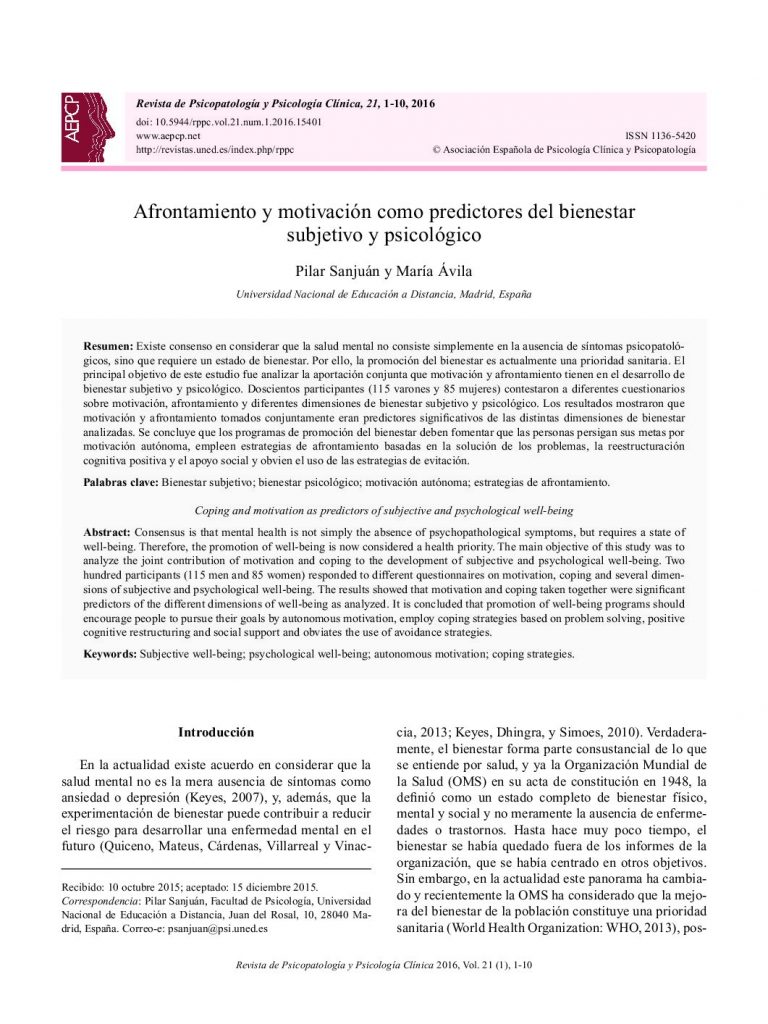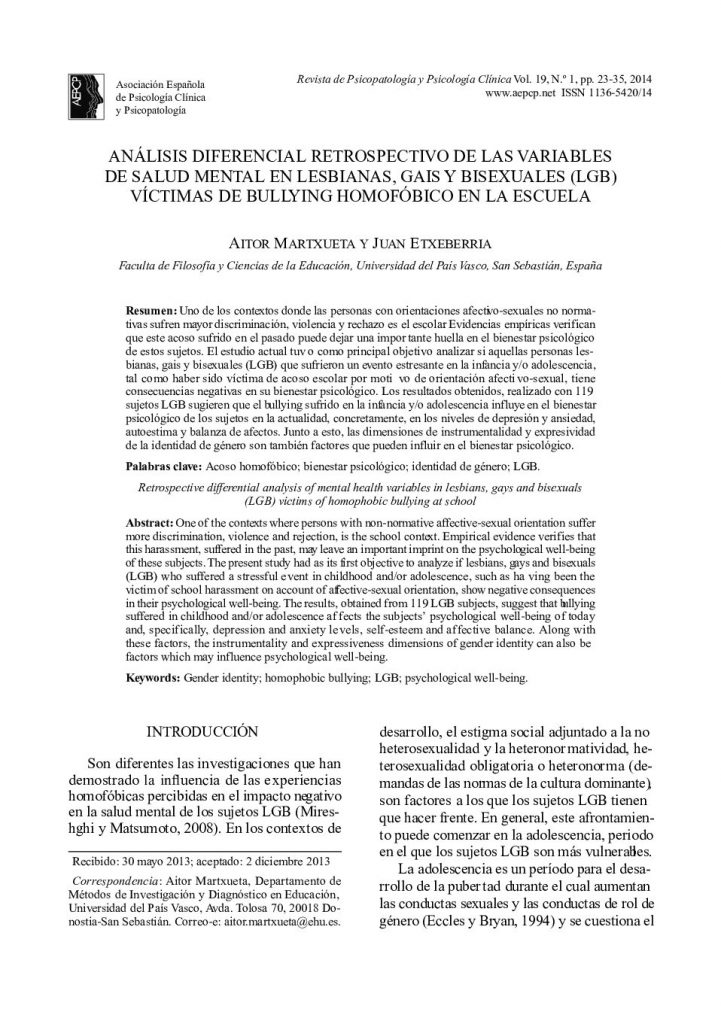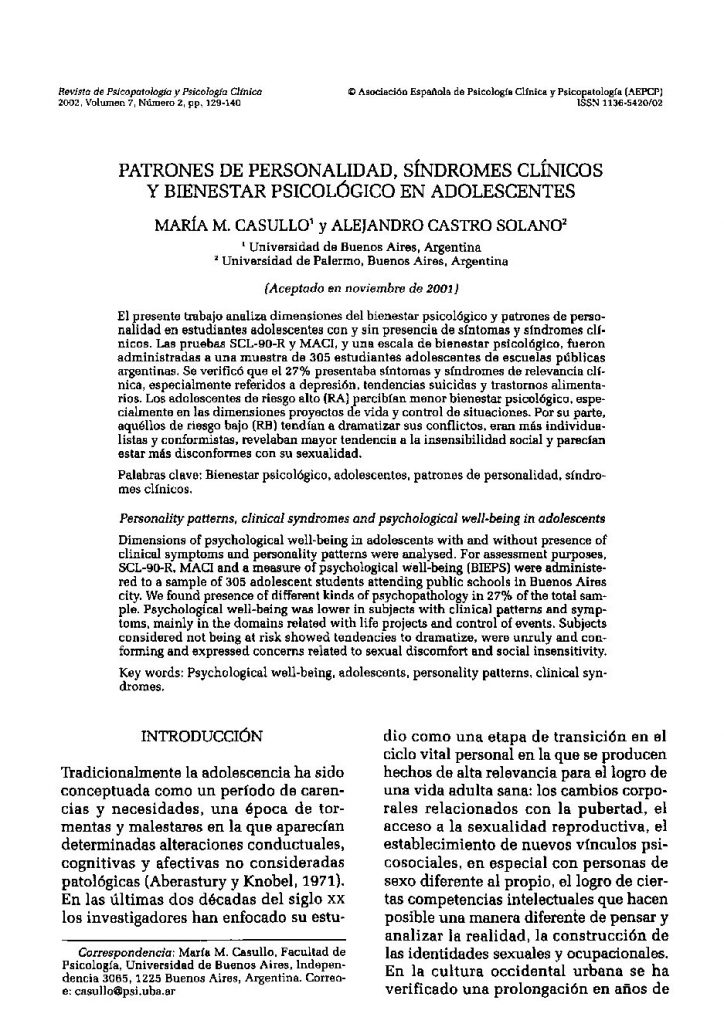Afrontamiento y motivación como predictores del bienestar subjetivo y psicológico.

- Afrontamiento y motivación como predictores del bienestar subjetivo y psicológico.
- Influencia de la sensibilidad a la ansiedad en una intervención psicológica para dejar de fumar.
- Características individuales y familiares de los adolescentes inmersos en violencia filio-parental: la agresividad física, la cohesión familiar y el conflicto interparental como variables explicativas.
- Kretschmer revisited: Mental fatigue and ideas of reference: Contributions from Reinforcement Sensitivity Theory.
- ¿Que pueden aportar actualmente las nuevas tecnologías al trastorno bipolar?.
- El tratamiento psicológico de la tricotilomanía: Un estudio de caso.
- Hipnoterapia y terapia breve centrada en soluciones aplicadas a síntomas por abuso sexual infantil: Un estudio de caso.
Consensus is that mental health is not simply the absence of psychopathological symptoms, but requires a state of well-being. Therefore, the promotion of well-being is now considered a health priority. The main objective of this study was to analyze the joint contribution of motivation and coping to the development of subjective and psychological well-being. Two hundred participants (115 men and 85 women) responded to different questionnaires on motivation, coping and several dimen- sions of subjective and psychological well-being. The results showed that motivation and coping taken together were significant predictors of the different dimensions of well-being as analyzed. It is concluded that promotion of well-being programs should encourage people to pursue their goals by autonomous motivation, employ coping strategies based on problem solving, positive cognitive restructuring and social support and obviates the use of avoidance strategies.
Existe consenso en considerar que la salud mental no consiste simplemente en la ausencia de síntomas psicopatoló- gicos, sino que requiere un estado de bienestar. Por ello, la promoción del bienestar es actualmente una prioridad sanitaria. El principal objetivo de este estudio fue analizar la aportación conjunta que motivación y afrontamiento tienen en el desarrollo de bienestar subjetivo y psicológico. Doscientos participantes (115 varones y 85 mujeres) contestaron a diferentes cuestionarios sobre motivación, afrontamiento y diferentes dimensiones de bienestar subjetivo y psicológico. Los resultados mostraron que motivación y afrontamiento tomados conjuntamente eran predictores significativos de las distintas dimensiones de bienestar analizadas. Se concluye que los programas de promoción del bienestar deben fomentar que las personas persigan sus metas por motivación autónoma, empleen estrategias de afrontamiento basadas en la solución de los problemas, la reestructuración cognitiva positiva y el apoyo social y obvien el uso de las estrategias de evitación.





